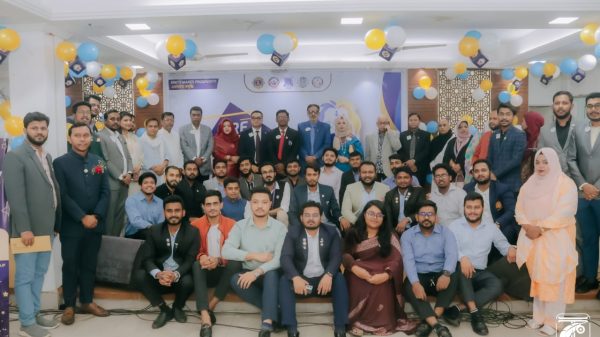Most Advanced Vocabulary to Achieve a High Score in Any English Language Test 2025 ( Excellence )
- Update Time : Tuesday, March 18, 2025
- 160 Time View

Most Advanced Vocabulary Words to Use in English Tests ( Excellence )
Here are some advanced vocabulary words that can help you score higher in any English language test. Learning these words and understanding their usage can give your language skills a boost:
1. Eloquent (Adjective)
- Definition: Fluent or persuasive in speaking or writing.
- Example: The speaker gave an eloquent speech that captivated the audience.
2. Ubiquitous (Adjective)
- Definition: Present, appearing, or found everywhere.
- Example: Smartphones have become ubiquitous in modern society.
3. Ephemeral (Adjective)
- Definition: Lasting for a very short time.
- Example: The beauty of the sunset was ephemeral, disappearing as quickly as it arrived.
4. Candid (Adjective)
- Definition: Truthful and straightforward.
- Example: The candidate gave a candid response during the interview.
5. Facetious (Adjective)
- Definition: Treating serious issues with deliberately inappropriate humor.
- Example: His facetious remarks were not appreciated during the serious discussion.
6. Inundate (Verb)
- Definition: To overwhelm with things or people to be dealt with.
- Example: The company was inundated with customer inquiries after the product launch.
7. Obfuscate (Verb)
- Definition: To deliberately make something unclear or difficult to understand.
- Example: The politician tried to obfuscate the truth with complicated jargon.
8. Ineffable (Adjective)
- Definition: Too great or extreme to be expressed or described in words.
- Example: The ineffable beauty of the landscape left me speechless.
9. Perspicacious (Adjective)
- Definition: Having a ready insight into and understanding of things.
- Example: Her perspicacious analysis of the novel impressed the professor.
10. Meticulous (Adjective)
- Definition: Showing great attention to detail; very careful and precise.
- Example: The artist was meticulous in creating every small detail of the painting.
By incorporating these words into your writing and speaking, you can demonstrate your command of the English language and impress examiners with your sophisticated vocabulary.
A high score in any English language test is achievable with the right preparation, and mastering advanced vocabulary plays a crucial role in that process. By focusing on understanding words in context, learning synonyms and antonyms, and incorporating academic vocabulary into your writing, you can greatly improve your language skills. Moreover, reading widely, practicing your vocabulary regularly, and using words in your daily communication will help you retain them better and use them naturally.
Don’t just memorize words—understand how to use them effectively in different situations, and soon, you’ll see significant improvements in your English test performance.
Why Most Advanced Vocabulary Matters in English Language Tests?
Before diving into specific vocabulary strategies, it’s important to understand why vocabulary plays such a critical role in any English language test. Here are a few key reasons why vocabulary is so important:
- Increased Precision: A broad vocabulary allows you to express yourself more clearly and with greater precision. In both writing and speaking sections, the ability to choose the right word can make your responses more effective and meaningful.
- Higher Scores in Writing and Speaking: Test graders look for the use of varied and sophisticated vocabulary in the writing and speaking sections. Demonstrating your ability to use high-level vocabulary correctly can significantly boost your score.
- Reading Comprehension: A strong vocabulary helps you better understand the reading passages and answer questions more accurately. When you’re familiar with complex words, you’re less likely to get confused by unfamiliar vocabulary in the test.
- Listening Comprehension: Advanced vocabulary allows you to comprehend a wider range of spoken content, which is crucial for the listening sections of exams like IELTS and TOEFL.
How to Achieve a High Score with Advanced Vocabulary
Mastering advanced vocabulary isn’t just about memorizing long lists of words—it’s about understanding how to use these words appropriately in context. Here are some strategies for using advanced vocabulary to achieve a high score in your English test:
1. Focus on Contextual Understanding
Advanced vocabulary is often nuanced, meaning that certain words have different meanings depending on their context. It’s crucial to not only memorize the definition of a word but also understand how it’s used in different contexts. For example:
- “Benevolent” means kind, but its usage might differ depending on whether you’re describing a person, a government, or an organization.
- “Adversity” refers to hardship, but you might use it in different contexts, such as personal struggle or societal challenges.
To master vocabulary, read books, newspapers, and academic articles. Pay attention to how words are used in various contexts and try to understand their meaning within that specific context.
2. Practice Synonyms and Antonyms
Knowing synonyms (words with similar meanings) and antonyms (words with opposite meanings) can increase your flexibility with language. For instance, if you’re asked to describe a “good” experience, you can use words like “fantastic,” “exemplary,” or “commendable.” Similarly, if you want to describe something “bad,” you could use “detrimental,” “disastrous,” or “unfavorable.” This kind of diversity in your language use will impress examiners and elevate your score.
3. Master Academic Vocabulary
In most English language tests, especially those aimed at higher education, you’ll be expected to understand and use academic vocabulary. Words like “analyze,” “evaluate,” “interpret,” and “synthesize” are commonly used in writing and speaking sections. These words are essential for discussing topics in a critical, analytical, or academic manner.
Make sure you’re comfortable using academic vocabulary in your writing. Practice forming sentences with these words so that you can confidently incorporate them into your responses.
4. Read Widely and Regularly
Reading widely and regularly is one of the best ways to enhance your vocabulary. By exposing yourself to various forms of writing—fiction, nonfiction, news articles, academic papers, etc.—you’ll encounter new words and phrases that you can incorporate into your vocabulary. Here are some types of reading materials to explore:
- News Articles: Stay updated with current events, and pay attention to the vocabulary used in the articles.
- Novels and Literature: Read both classic and modern literature. Authors often use rich and varied language that will expose you to new words.
- Academic Journals: Reading scholarly articles and research papers can introduce you to formal language and specialized terminology.
As you read, take note of any unfamiliar words, and make sure to look them up in a dictionary. Over time, this will expand your vocabulary and improve your comprehension skills.
5. Use Vocabulary in Context
The key to truly mastering vocabulary is using it in context. Try to incorporate newly learned words into your daily speech or writing. This will help solidify your understanding and retention of the word. If you’re studying for a test, practice writing essays or speaking responses using advanced vocabulary words.
It’s also important to avoid overusing complex words. While using advanced vocabulary is important, it’s equally crucial that your writing or speech remains natural. Using complex words just for the sake of it can make your writing sound forced and awkward.
FAQs
-
How can I learn advanced vocabulary for English tests?
- Read regularly, use vocabulary in context, and practice writing and speaking using new words. Engage with academic texts, novels, and news articles.
-
Is it necessary to use advanced vocabulary in all English tests?
- While advanced vocabulary is important, it’s crucial to use it naturally and appropriately. Overuse can make your language sound unnatural.
-
Can I use complex vocabulary in speaking exams?
- Yes, using advanced vocabulary in speaking exams can demonstrate your proficiency. Just ensure that you use it appropriately and clearly.
-
How do I memorize advanced vocabulary?
- Create flashcards, use the words in sentences, and revisit them regularly to reinforce your memory. Practice speaking and writing with them.
-
What are some tips for improving my vocabulary quickly?
- Read daily, engage with challenging texts, keep a vocabulary journal, and review words consistently. Practice them in speaking and writing.
















Leave a Reply